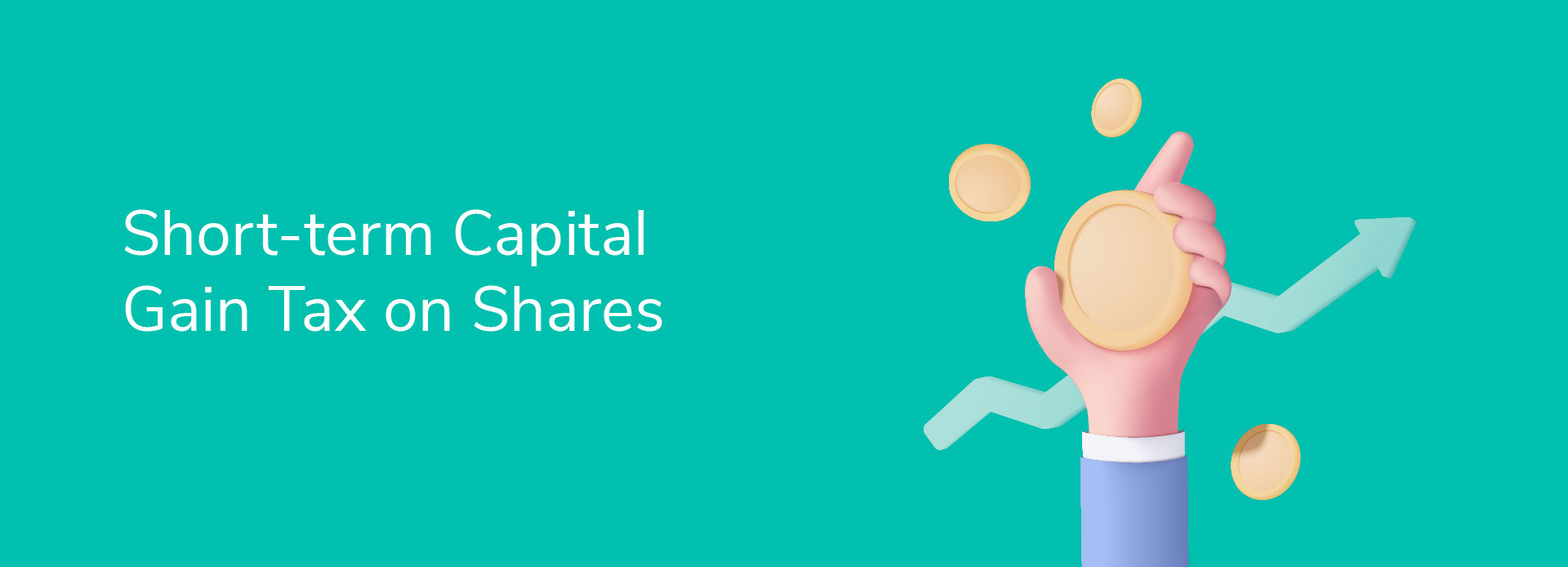
Short-Term Capital Gain Tax on Shares
24 May 2024 | By INDIE
In recent years, there has been a noticeable shift in investor behaviour, with an increasing number of individuals showing a willingness to take on the risks associated with investing in stocks. Several factors contribute to this trend, including greater accessibility to financial markets through online trading platforms, a growing awareness of investment opportunities, and a desire to seek higher returns in a low-interest-rate environment.
However, along with the attraction of quick profits in the short term comes the need for a thorough understanding of the associated obligations, including taxation. As you start investing in stocks, you must equip yourself with the necessary knowledge of short-term capital gain tax on shares.
In this guide, we'll cover this concept in detail, its impact on investment returns, and more.
More About Short-Term Capital Gain Tax on Shares
As the name suggests, short-term capital gain tax on shares refers to the tax levied on the profits generated from the sale of shares held for a relatively short period, typically less than a year. This tax is applicable when you sell shares at a price higher than the purchase price within the short-term holding period.
Unlike long-term capital gains tax, which applies to investments held for more than a year, STCG tax is subject to different (higher) tax rates. Understanding the nuances of short-term capital gains tax is essential as it directly impacts the overall returns on your investments.
Tax Implications on Short-Term Capital Gains on Shares
Short-term capital gains tax on shares applies only to shares classified as short-term capital assets. To ascertain the tax rate for these capital gains on shares, you must know that the gains are categorised into two groups:
● Short-Term Capital Gains under Section 111A
The taxation of short-term capital gains on equity shares is defined under Section 111A of the Income Tax Act, 1961. This Section outlines the tax liability for gains from equity shares, equity-oriented mutual funds, and units of business trusts sold through a recognised stock exchange.
● Short-Term Capital Gains not falling under Section 111A
Gains from shares not listed on any recognised stock exchange are not taxed under Section 111A of the Income Tax Act. Instead, these gains are included in the investor's total income during the income tax filing process and taxed according to the applicable income tax slab.
Recommended Read: What is a Floating Stock?
Exemptions Related to Short-Term Capital Gains Tax
Short-term capital gain tax on shares exemptions are rare. Still, specific income thresholds allow individuals to be exempted from paying income tax on such gains. These exemptions are particularly beneficial for certain categories of taxpayers, including:
● Resident Individuals Aged 80 years or Above
Indian individuals aged 80 years or above enjoy an exemption from paying income tax on short-term capital gains on shares if their annual income is up to Rs. 5 lakhs.
● Resident Individuals Aged 60-79 years
Resident individuals aged between 60 and 79 years are exempted from paying income tax on capital gains on shares if their annual income does not exceed Rs. 3 lakhs.
● Resident Individuals Below 60 years
Individuals under 60 are exempt from paying income tax on STCG on shares if their annual income does not exceed Rs. 2.5 lakh.
● Hindu Undivided Families (HUF)
Hindu Undivided Families (HUFs) with incomes of up to Rs. 2.5 lakh per year are exempt from paying tax on these gains on shares.
How to Reduce Your STCG Tax Liability on Shares?
To minimize your short-term capital gains tax on shares, consider the following strategies:
● Adjust your short-term capital losses on shares against other short-term or long-term capital gains. Exercise caution and avoid excessive reliance on this method.
● If your short-term capital losses exceed your capital gains in a particular financial year, you are allowed to carry forward the remaining losses to future years as a tax adjustment for up to 8 financial years.
Disclaimer: The information provided in this article is generic and for informational purposes only. It is not a substitute for specific advice in your circumstances. Hence, you are advised to consult your financial advisor before making any financial decision. IndusInd Bank Limited (IBL) does not influence the views of the author in any way. IBL and the author shall not be responsible for any direct/indirect loss or liability incurred by the reader for making any financial decisions based on the contents and information.




